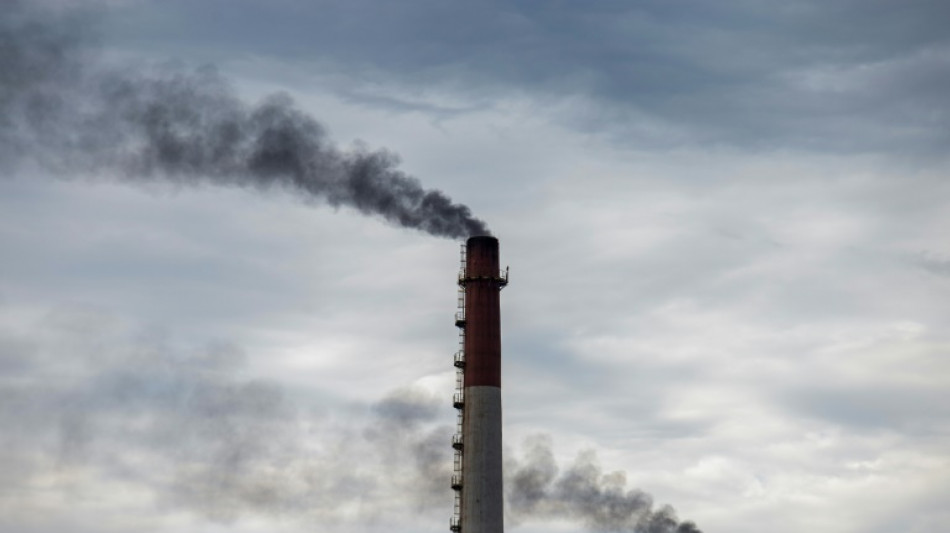
-
 Rodgers misery as Texans rout Steelers to advance in NFL playoffs
Rodgers misery as Texans rout Steelers to advance in NFL playoffs
-
Morocco's Bono 'one of best goalkeepers in the world'

-
 Salah and Mane meet again with AFCON final place on the line
Salah and Mane meet again with AFCON final place on the line
-
French museum fare hikes for non-European tourists spark outcry

-
 In 'big trouble'? The factors determining Iran's future
In 'big trouble'? The factors determining Iran's future
-
Osimhen finds AFCON scoring touch to give Nigeria cutting edge

-
 Trump announces tariffs on Iran trade partners as protest toll rises
Trump announces tariffs on Iran trade partners as protest toll rises
-
Sabalenka favourite at Australian Open but faces Swiatek, US threats

-
 Gay Australian footballer Cavallo alleges former club was homophobic
Gay Australian footballer Cavallo alleges former club was homophobic
-
Trump has options on Iran, but first must define goal

-
 Paris FC's Ikone stuns PSG to knock out former club from French Cup
Paris FC's Ikone stuns PSG to knock out former club from French Cup
-
Australia's ambassador to US leaving post, marked by Trump rift

-
 Slot angered by 'weird' Szoboszlai error in Liverpool FA Cup win
Slot angered by 'weird' Szoboszlai error in Liverpool FA Cup win
-
Szoboszlai plays hero and villain in Liverpool's FA Cup win

-
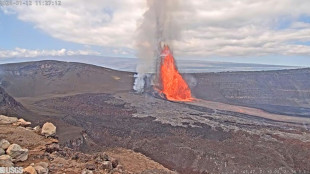 Hawaii's Kilauea volcano puts on spectacular lava display
Hawaii's Kilauea volcano puts on spectacular lava display
-
US stocks at records despite early losses on Fed independence angst
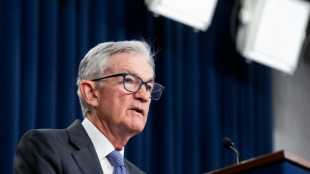
-
 Koepka rejoins PGA Tour under new rules for LIV players
Koepka rejoins PGA Tour under new rules for LIV players
-
Ex-France, Liverpool defender Sakho announces retirement

-
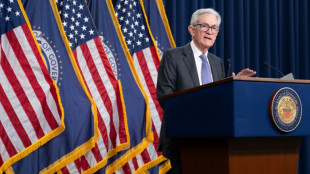 Jerome Powell: The careful Fed chair standing firm against Trump
Jerome Powell: The careful Fed chair standing firm against Trump
-
France scrum-half Le Garrec likely to miss start of Six Nations

-
 AI helps fuel new era of medical self-testing
AI helps fuel new era of medical self-testing
-
Leaders of Japan and South Korea meet as China flexes muscles

-
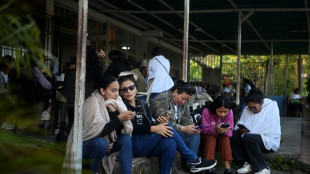 Trump sets meeting with Venezuelan opposition leader, Caracas under pressure
Trump sets meeting with Venezuelan opposition leader, Caracas under pressure
-
Australia captain Alyssa Healy to retire from cricket

-
 US 'screwed' if Supreme Court rules against tariffs: Trump
US 'screwed' if Supreme Court rules against tariffs: Trump
-
NATO, Greenland vow to boost Arctic security after Trump threats

-
 Israel to take part in first Eurovision semi-final on May 12
Israel to take part in first Eurovision semi-final on May 12
-
How Alonso's dream Real Madrid return crumbled so quickly

-
 Ex-Fed chiefs, lawmakers slam US probe into Jerome Powell
Ex-Fed chiefs, lawmakers slam US probe into Jerome Powell
-
Former Panama leader on trial over mega Latin America corruption scandal

-
 Trump keeping Iran air strikes on the table: White House
Trump keeping Iran air strikes on the table: White House
-
Paramount sues in hostile bid to buy Warner Bros Discover

-
 Ugandan opposition leader Bobi Wine warns of protests if polls rigged
Ugandan opposition leader Bobi Wine warns of protests if polls rigged
-
Airbus delivers more planes in 2025

-
 Alonso leaves Real Madrid, Arbeloa appointed as coach
Alonso leaves Real Madrid, Arbeloa appointed as coach
-
UK pays 'substantial' compensation to Guantanamo inmate: lawyer
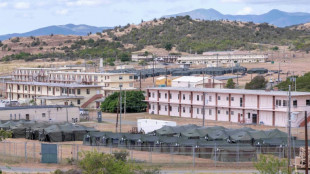
-
 Iran protest toll mounts as government stages mass rallies
Iran protest toll mounts as government stages mass rallies
-
Gold hits record high, dollar slides as US targets Fed
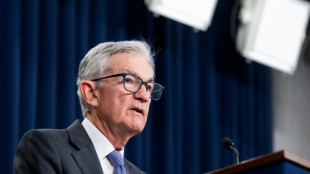
-
 Cuba denies being in talks with Trump on potential deal
Cuba denies being in talks with Trump on potential deal
-
Scientists reveal what drives homosexual behaviour in primates

-
 Venezuela releases more political prisoners as pressure builds
Venezuela releases more political prisoners as pressure builds
-
15,000 NY nurses stage largest-ever strike over conditions

-
 Rosenior plots long Chelsea stay as Arsenal loom
Rosenior plots long Chelsea stay as Arsenal loom
-
Zuckerberg names banker, ex-Trump advisor as Meta president

-
 Reza Pahlavi: Iran's ex-crown prince dreaming of homecoming
Reza Pahlavi: Iran's ex-crown prince dreaming of homecoming
-
Venezuela releases more political prisoners
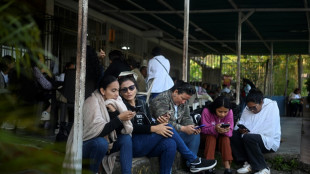
-
 Kenya's NY marathon champ Albert Korir gets drug suspension
Kenya's NY marathon champ Albert Korir gets drug suspension
-
US prosecutors open probe of Fed chief, escalating Trump-Powell clash

-
 Russian captain in fiery North Sea crash faces UK trial
Russian captain in fiery North Sea crash faces UK trial
-
Carrick is frontrunner for interim Man Utd job: reports


Overshooting 1.5C risks 'irreversible' climate impact: study
Any breach of what climate scientists agree is the safer limit on global warming would result in "irreversible consequences" for the planet, said a major academic study published on Wednesday.
Even temporarily exceeding 1.5 degrees Celsius before bringing temperatures back down -- a scenario known as an "overshoot" -- could cause sea level rises and other disastrous repercussions that might last millenia.
This "does away with the notion that overshoot delivers a similar climate outcome" to a future where more was done earlier to curb global warming, said Carl-Friedrich Schleussner, who led the study co-authored by 30 scientists.
The findings, three years in the making, are urgent, as the goal of capping global temperature rises at 1.5C above pre-industrial levels is slipping out of reach.
Emissions of heat-trapping greenhouse gases must nearly halve by 2030 if the world is to reach 1.5C -- the more ambitious target enshrined in the 2015 Paris climate accord.
Currently however, they are still rising.
Some kind of overshoot of 1.5C is increasingly being seen as inevitable by scientists and policymakers.
This new study, published in the peer-reviewed journal Nature, cautions against "overconfidence" in such a scenario when the dangers are not fully appreciated.
An overshoot could trigger impacts that last hundreds if not thousands of years, or cross "tipping points" that prompt large and unrepairable changes in earth's climate system, the scientists warn.
It could mean the thawing of permafrost and peatlands, carbon-rich landscapes that would release huge volumes of planet-heating greenhouse gases if lost.
And sea levels could rise an additional 40 centimetres (16 inches) if 1.5C is exceeded for a century, the authors said, an existential difference for vulnerable low-level island nations.
"For most climate indicators, there are irreversible consequences due to the temporary exceedance of, for example, the 1.5 degree limit," said Schleussner from the Austria-based International Institute of Applied Systems Analysis.
"Even if you brought temperatures back down again, the world that we are looking at is not the same as if you didn't overshoot."
- Act now -
Taken together, the world's existing pledges for climate action would result in nearly 3C of warming by 2100, according to the UN.
To reach 1.5C, emissions must be at net zero by 2050, which means balancing the amount of carbon dioxide produced against the amount humanity can remove from the atmosphere via technology.
This process, known as carbon removal, would need to be massively scaled up to pull global temperatures back down in the event of an overshoot, something that is far from guaranteed.
"We cannot be confident that temperature decline after overshoot is achievable within the timescales expected today," the authors wrote.
Schleussner said their findings reinforced "the urgency of governments acting to reduce emissions now and not later down the line, to keep peak warming as low as possible".
"If you want to limit the climate risks in an effective manner, the race to net zero needs to be seen for what it is," he said.
L.Hussein--SF-PST



